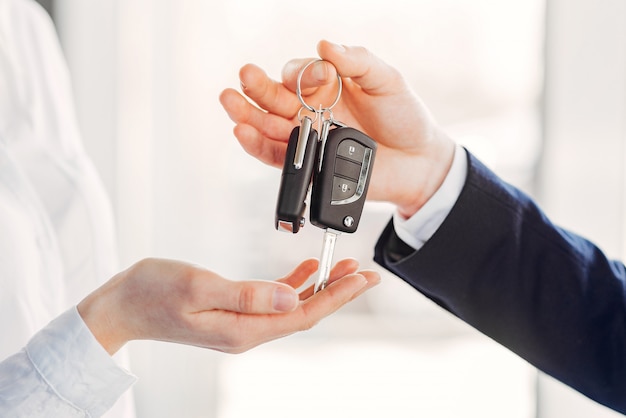Every car owner has experienced that moment of dread when a key slips from their grasp, only to land at an awkward angle, bending perilously in the process. A bent car key may seem like a minor inconvenience, yet its implications can be anything but trivial.
Over time, the misalignment can exacerbate wear and tear on your cars lock mechanism. This seemingly innocuous problem can lead to frustration, costly repairs, and even accidental lockouts.
But fear not! Understanding the mechanics of your key and lock system can illuminate the path to effective solutions. In this article, we’ll delve into how a bent key creates chaos within your vehicle’s locking system, the damage it can inflict, and the straightforward steps you can take to remedy the situation before it spirals out of control.
Signs of a Damaged Key and Lock Mechanism

When it comes to identifying signs of a damaged key and lock mechanism, there are several critical indicators to observe. First, if your car key feels resistant when inserting it into the lock or requires undue force, this could signal misalignment or damage.
Additionally, you might notice a rattling sound when the key turns or a chronic refusal to engage—both clear signs that something is amiss. Often, the lock itself may appear corroded or sticky, which can exacerbate the problem further.
A key that no longer fits snugly in its corresponding lock is another telltale sign. If you’re experiencing these symptoms, it’s essential to address them promptly, as neglecting such issues may lead to more significant problems down the road, including a total lock failure or the need for a costly key replacement.
Strategies for Fixing a Bent Car Key
When faced with a bent car key, many might feel frustrated, but there are practical strategies to salvage the situation. First, assess the extent of the bend—if its slight, you might be able to gently straighten it using your hands or a pair of pliers.
Wrap the key in a soft cloth to protect its surface, then apply gradual pressure, ensuring not to snap it in the process. If the damage is more significant, a locksmith can help reshape the key with tools specifically designed for this purpose.
Alternatively, if you have access to a key duplication service, consider creating a new key based on the originals design, as this often yields better results without risking further damage to your lock. Remember, preventing future bends is crucial, so store your keys in a safe place and avoid using excessive force when inserting or turning the key in the ignition.
Preventative Measures to Avoid Future Key and Lock Damage

To avoid the frustrations of a bent car key and the potential damage it can wreak on your locks, adopting a few preventative measures can be a game changer. First and foremost, always handle your keys with care—avoid using excess force when inserting or turning them in the ignition or door lock.
Additionally, consider investing in a high-quality keychain; one that isn’t too bulky but sturdy enough to withstand everyday wear and tear can help keep your keys organized and prevent bending. Regularly inspect your keys for signs of wear or damage, and don’t hesitate to replace them at the first hint of trouble, as a small investment can save you from a costly lock replacement.
Lastly, if you’re frequently faced with lock issues, consult a locksmith to assess your locks condition and ensure they operate smoothly—this proactive approach keeps your car and keys in harmony, minimizing the risk of future mishaps.
Conclusion
In conclusion, a bent car key may seem like a minor inconvenience, but it can lead to significant damage to your vehicle’s lock mechanism if not addressed swiftly. Understanding the potential consequences and recognizing the signs of a problem can save you time, money, and frustration down the line.
If you find yourself dealing with a bent key, its essential to seek the assistance of a professional locksmith to repair or replace it properly. For expert guidance and solutions, consider visiting Mr-key.com, where you can find a range of services designed to keep your vehicle secure and functional. Taking proactive steps now will ensure you avoid costly repairs in the future and maintain the integrity of your cars locking system.


